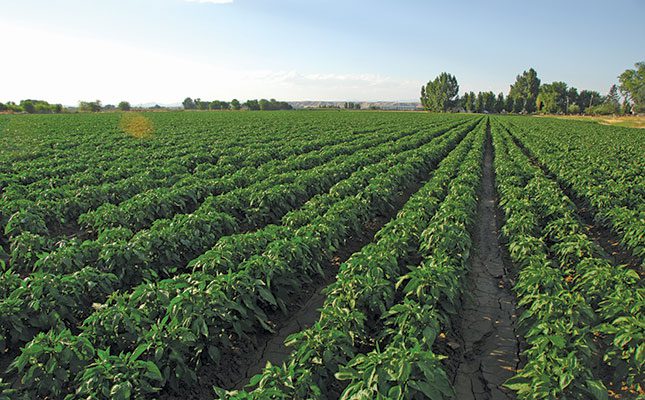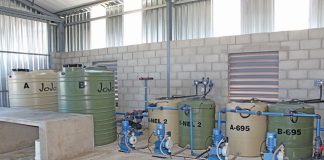
Photo: USDA
Natural fertilisers for vegetables include manure, compost, industrial waste products from animals, and biodegradable material, which is normally eco-friendly. (The process through which it is made is not necessarily eco-friendly or sustainable, however.)
Each product has its advantages and disadvantages. The grower must evaluate and understand which natural fertiliser is most suitable for the crop and the farm.
Note that ‘natural’ does not mean ‘organic’; there is a big difference.
‘Organic’ fertiliser means that the raw material comes from either plants or animals. The conditions under which it is created, however, might not be environmentally friendly. It is a misconception that all organic material can be classified as organic and environmentally safe.
The use of natural fertilisers
Organic fertiliser can provide plant nutrition and improve the soil. A natural fertiliser is a source of nutrition because most of the content is mineralised by the time it is available for plants to use. The more complex components take longer to break down by bacteria, which suits the plant, as it cannot use it all at once. It is therefore a slow-release fertiliser.
Most growers associate ‘organic material’ with nitrogen. Although it is a major source of nitrogen, organic material contains other important macro- and micro-nutrients essential to plant growth.
Organic acids help free up iron and manganese, enabling greater uptake by the plant. Synthetic fertilisers don’t have this advantage.
All commercial plants benefit from a good supply of organic material. (Although too much fresh material can cause vigorous initial growth, just like adding too much nitrogen fertiliser.)
Natural fertiliser will benefit the soil ecosystem and plant growth only when decomposed; raw green organic material is of no use to the plants or soil. It might loosen up the soil for a while, but it does not provide any nutrients or minerals.
Please note: a ‘nitrogen-negative’ period can begin two weeks after the application of concentrated decomposed organic material that is not stabilised. No nitrogen will be available to the plant for a week or so, after which nitrogen will be released at a steady rate.
Organic matter
Organic material boosts the health of the soil in a number of ways:
- It increases the nitrogen content.
- It replaces some inorganic fertiliser with organic or natural fertilisers.
- It improves the soil structure, thereby improving permeability and increasing water-holding capacity, cation exchange capacity and aeration.
- It increases the soil’s microbial content. Over-fertilised soil may be effectively ‘dead’, as it has lost the beneficial bacteria and fungi that assist with plant growth.
- It optimises the carbon:nitrogen ratio of the soil.
Source: Antonius Lecuona, A. 2019. ‘Natural fertilizers for vegetables’. Horticulture South Africa.










